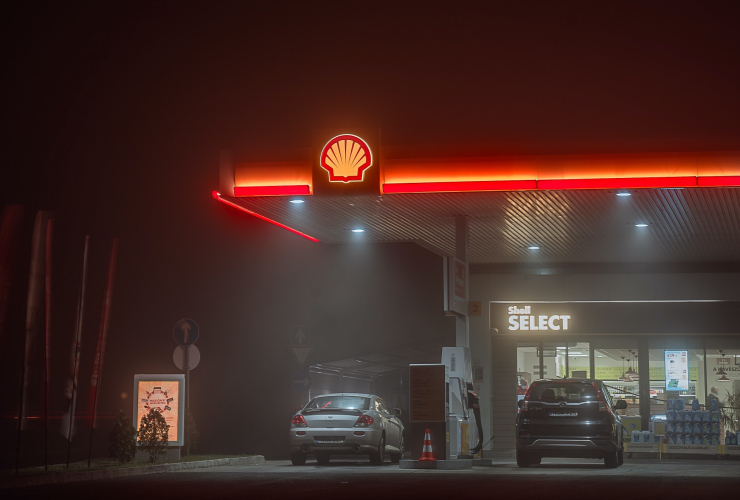An investigation into false advertising by Shell Canada has been closed after the company stopped a campaign which encouraged customers to fund carbon-offset projects at the fuel pump.
Greenpeace Canada submitted a complaint to the Competition Bureau of Canada in 2021 about Shell’s Drive Carbon Neutral program. A company press release said from Dec. 31, 2020 onward, customers had the option to contribute two cents per litre to various carbon-offset projects while getting gas.
Greenpeace argued the Drive Carbon Neutral program was greenwashing that tricked customers into participating in an initiative making false claims. The complaint said Shell’s program violated the Competition Act, a federal law governing the majority of business conduct in the country.
In December, the bureau sent the organization a letter saying it was no longer looking into the complaint because the advertisements were removed from the company’s site and app.
Legally, the bureau can’t provide further information about the specific case, but “takes deceptive environmental claims seriously, and it does not hesitate to take action when it finds evidence of wrongdoing,” said spokesperson Marianne Blondin in an emailed statement.
“Generally, the Competition Act’s deceptive marketing provisions prohibit any business from making materially false, misleading, or unsubstantiated performance claims to promote a product, service or business interest,” explained Blondin. For example, Keurig paid a $3-million penalty for its false claims about single-use coffee pods, she noted.
“A claim is material if the general impression it conveys leads someone to take a particular course of action, like buying or using a product or service.”
Shell Canada did not respond to specific questions about greenwashing accusations, but confirmed it retired the Drive Carbon Neutral program in Canada in November.
In an emailed statement, a spokesperson said the company's "focus remains on providing our customers with the most competitive offers, including low-carbon alternatives that keep pace with consumer demand. We routinely evaluate our programs with a lens on customer value, market performance and business objectives.”
The Canadian offset program listed three forest-based projects as part of its initiative: one in Indonesia; one in Peru; and the Darkwoods Forest Carbon project in British Columbia. Each of the projects was criticized by Greenpeace for not creating meaningful carbon reductions. The Canada-based project, for example, is an over 50,000-hectare area the Nature Conservancy of Canada has had in its hands since 2008 and is already a protected area. Purchasing offsets for that area doesn’t seem to protect a new area, Greenpeace noted.
Although Shell wasn’t found guilty of violating the act, the fact that the ads were pulled is still a win, said Shane Moffatt, head of nature and food at Greenpeace Canada. The email from the Competition Bureau, stating the case was closed, was confirmation they were looking into the complaint, Moffatt said.
“People deserve to have accurate information about what's really causing the climate crisis and what's going to solve it. They don't deserve to be duped by corporations like Shell with these slick marketing campaigns into thinking a few trees can offset massive fossil fuel emissions,” he said.
“That's not fair to the public. And I think that people deserve to have accurate information.”
Moffat pointed out the same Drive Carbon Neutral program continues to run outside of Canada, in places such as the United Kingdom. But Greenpeace succeeded in challenging the program in the Netherlands. It was ruled as misleading by the country’s advertising watchdog in the summer of 2021, and Royal Dutch Shell was ordered to take its advertisements down.

Critics often suggest that offsets are a way for polluting industries to justify the production of fossil fuels – the main driver of climate change – instead of transitioning from oil and gas.
And Moffat said the advertising campaign is part of a much larger problem around greenwashing and its effect on federal climate policy.
Leading up to the launch of the federal carbon-pricing system for emitters in 2022, Shell Canada was actively lobbying the federal government about the “development of federal offset-system protocols,” according to the lobbying registry. Since then, Shell has advanced on its plans to build a liquefied natural gas export terminal on the West Coast.
“They have been quite a significant player advocating to the federal government that these kinds of offsets are the kind of climate action that the federal government … should be taking,” said Moffat.
In 2021, when asked about allegations of greenwashing, Shell insisted to Canada’s National Observer that carbon offsetting is a way for customers to take action – that the Drive Carbon Neutral program is an “important initiative.”
“...More than two-thirds of the total CO2 emissions associated with Shell come from the end-use of our products, so we must help our customers cut their emissions when they use that energy,” said Stephen Doolan, head of media relations for Shell Canada, at the time.
Thanks much to Greenpeace for
Thanks much to Greenpeace for getting on this fossil fuel propaganda and helping force the shut down of one of too many (s)Shell games going on.
Small victories are important along the way.






Comments